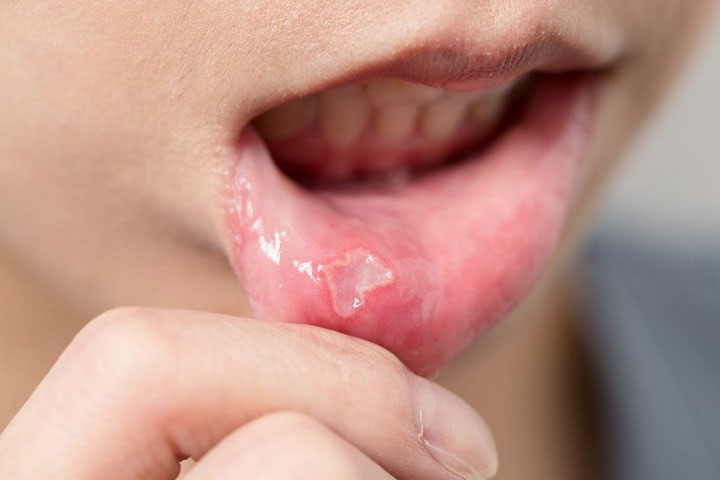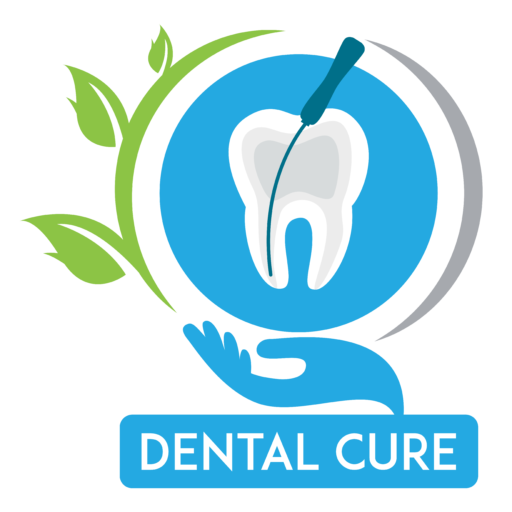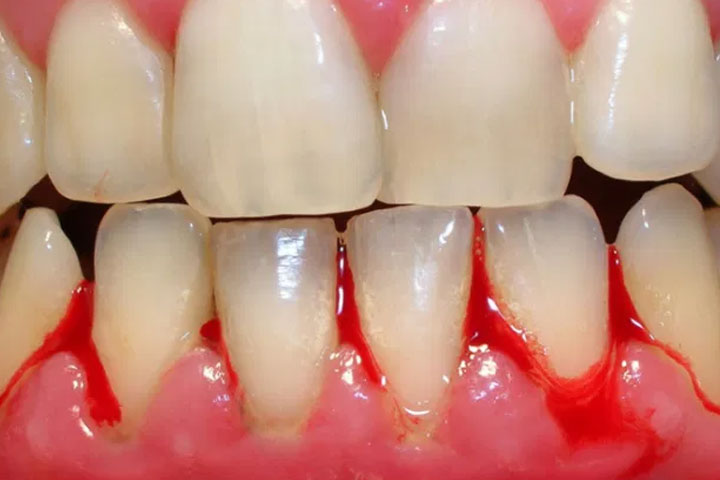
Mouth ulcers are small painful sores that form in the mouth. The most common type is called aphthous or simple ulcers. These are recurrent and often date from childhood and sometimes run in families.
Causes of Mouth Ulcers
The exact cause of most mouth ulcers is unknown.
- Stress or tissue injury is thought to be the cause of simple mouth ulcers. Very often these ulcers are seen appearing in young children and adults during exams.
- Certain foods, including citrus or acidic fruits and vegetables (such as lemons, oranges, pineapples, apples, figs, tomatoes, and strawberries), can trigger a mouth ulcer or make the problem worse.
- Sometimes a sharp tooth surface or dental appliances, such as braces or ill-fitting dentures, might also trigger mouth ulcers.
- Some cases of complex mouth ulcers are caused by an underlying health condition, such as an impaired immune system; nutritional problems, such as vitamin B-12, zinc, folic acid, or iron deficiency and gastrointestinal tract diseases, such as Coeliac disease and Crohn’s disease.
- When you first quit smoking, you may develop more mouth ulcers than normal, but this is temporary.
- Some medications, including common pain killers, beta-blockers, and some chest pain medicines may cause a reaction that leads to mouth ulcers.
- Allergic reactions to certain foods and medicines can also cause ulcers.
Ulcers can sometimes be the first indication of oral cancer; especially ones that are long-standing. These should be investigated at the earliest.
Symptoms of Mouth Ulcers
You may have a mouth ulcer if you have:
- A painful sore or sores inside your mouth, on the tongue, soft palate (the back portion of the roof of your mouth), or inside your cheeks.
- Sores in your mouth that are round, white, or grey in color, with a red edge or border. In severe mouth ulcer attacks, you may also experience:
- Fever
- Physical sluggishness
- Swollen lymph nodes
- Difficulty in swallowing
Treatment for Mouth Ulcers
Pain from a normal mouth ulcer generally lessens in a few days and the sores usually heal without treatment in about a week or two.
If sores are large, painful or persistent, your dentist may prescribe an antimicrobial mouth rinse, a corticosteroid ointment, or a prescription or non-prescription solution to reduce the pain and irritation.
Commonly used oral applications mainly to relieve pain and discomfort are :
- Dologel
- Dentogel
- Zytee
- Oracep gel



